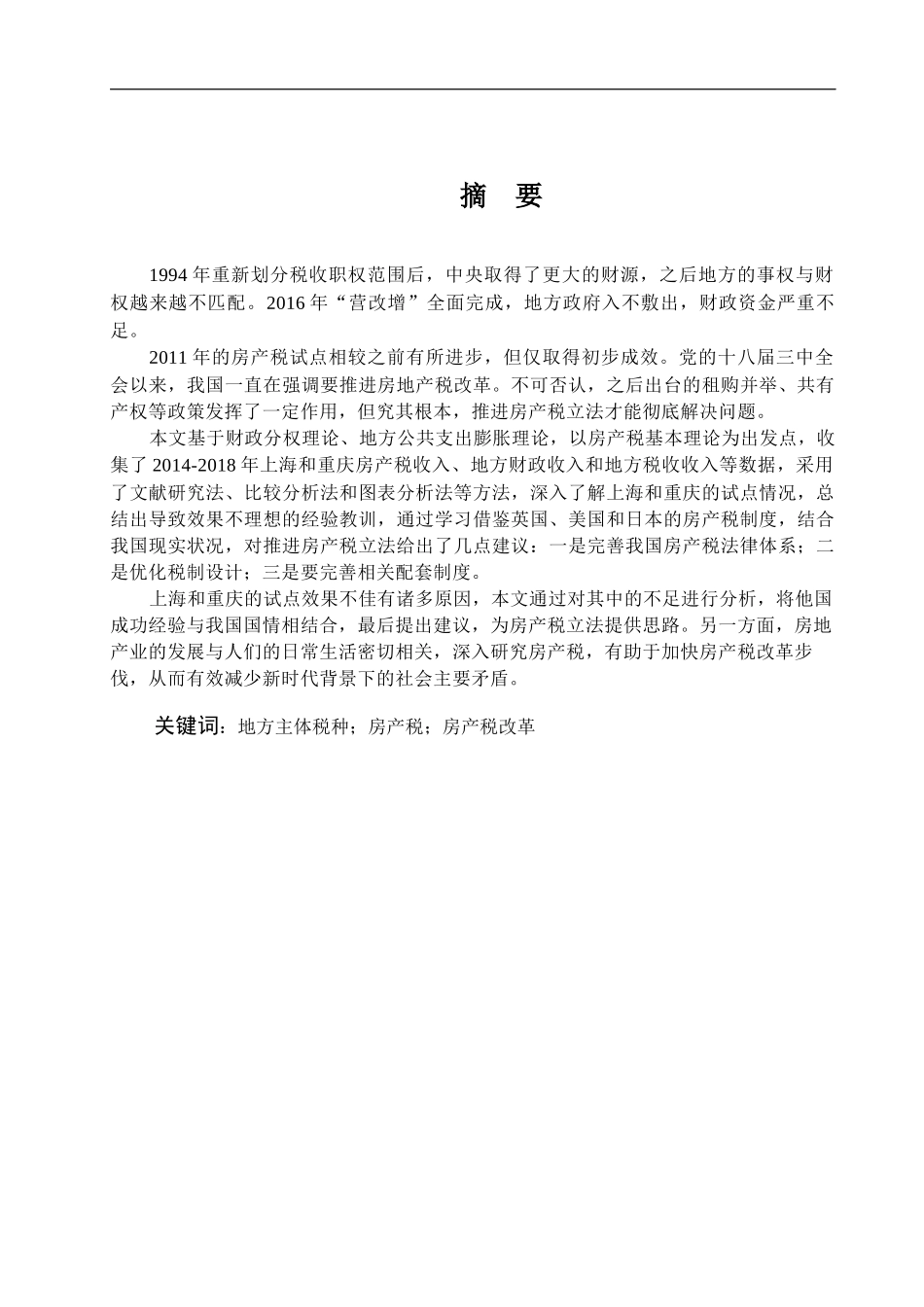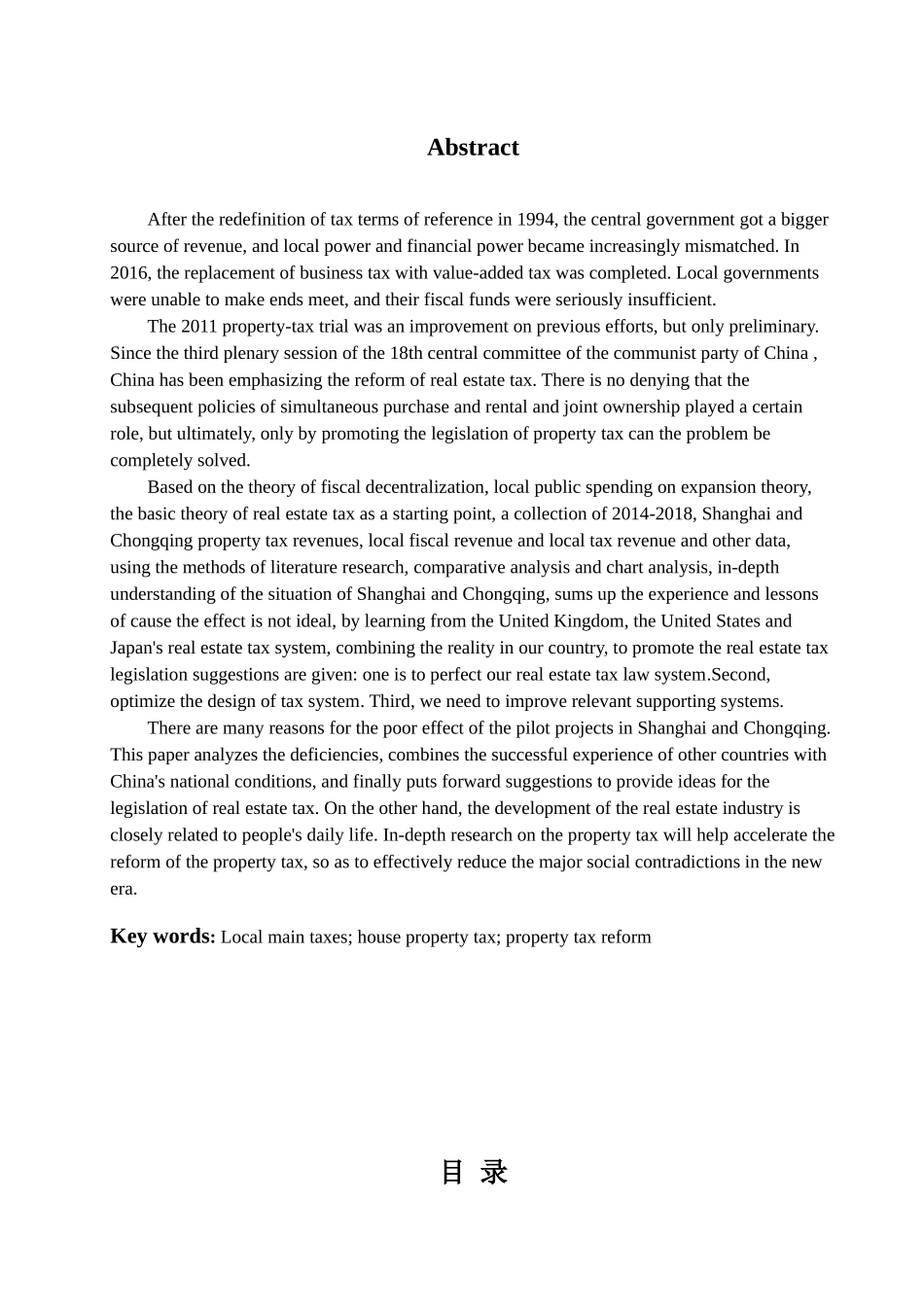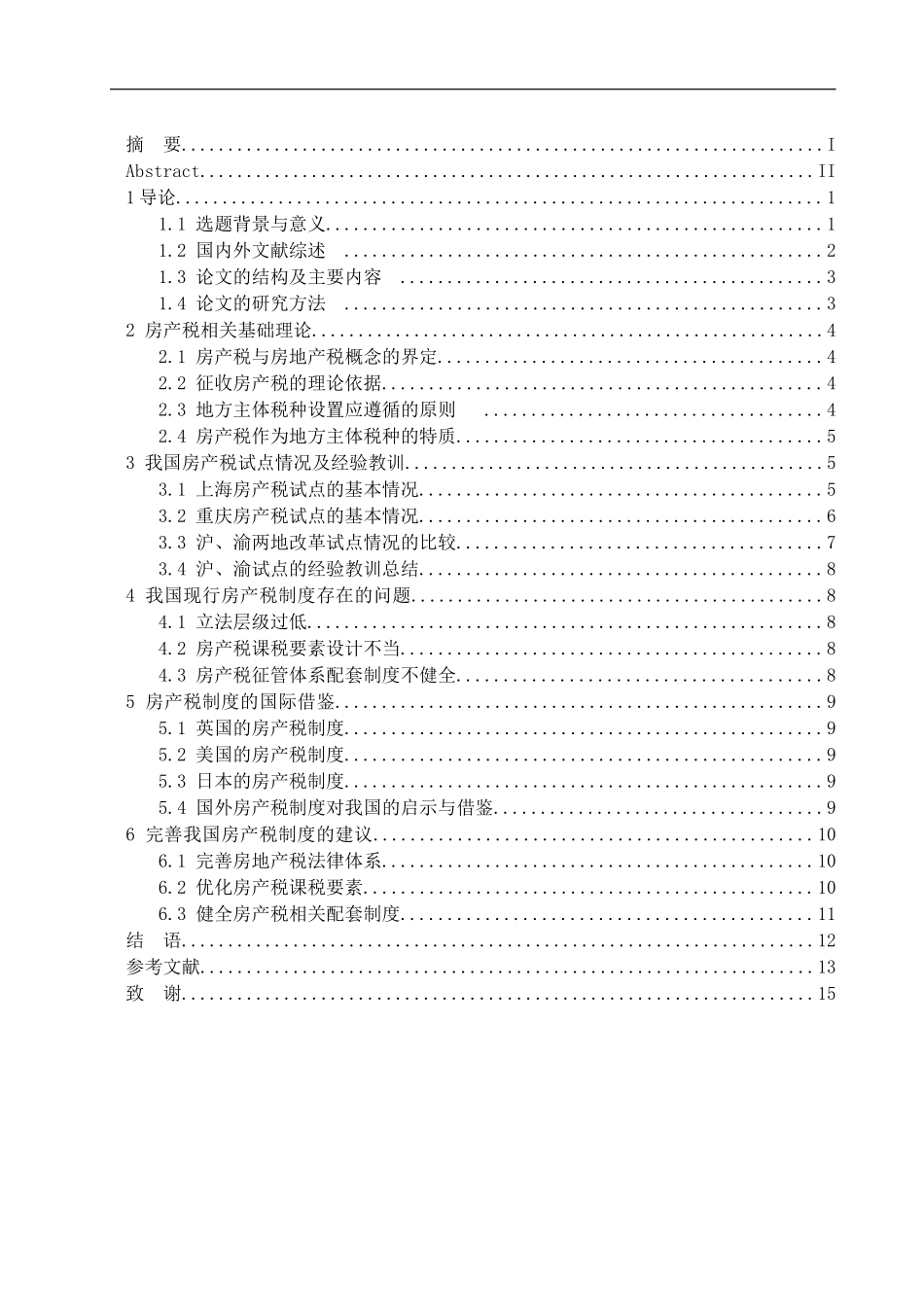摘 要1994 年重新划分税收职权范围后,中央取得了更大的财源,之后地方的事权与财权越来越不匹配。2016 年“营改增”全面完成,地方政府入不敷出,财政资金严重不足。2011 年的房产税试点相较之前有所进步,但仅取得初步成效。党的十八届三中全会以来,我国一直在强调要推进房地产税改革。不可否认,之后出台的租购并举、共有产权等政策发挥了一定作用,但究其根本,推进房产税立法才能彻底解决问题。 本文基于财政分权理论、地方公共支出膨胀理论,以房产税基本理论为出发点,收集了 2014-2018 年上海和重庆房产税收入、地方财政收入和地方税收收入等数据,采用了文献研究法、比较分析法和图表分析法等方法,深入了解上海和重庆的试点情况,总结出导致效果不理想的经验教训,通过学习借鉴英国、美国和日本的房产税制度,结合我国现实状况,对推进房产税立法给出了几点建议:一是完善我国房产税法律体系;二是优化税制设计;三是要完善相关配套制度。 上海和重庆的试点效果不佳有诸多原因,本文通过对其中的不足进行分析,将他国成功经验与我国国情相结合,最后提出建议,为房产税立法提供思路。另一方面,房地产业的发展与人们的日常生活密切相关,深入研究房产税,有助于加快房产税改革步伐,从而有效减少新时代背景下的社会主要矛盾。关键词:地方主体税种;房产税;房产税改革AbstractAfter the redefinition of tax terms of reference in 1994, the central government got a bigger source of revenue, and local power and financial power became increasingly mismatched. In 2016, the replacement of business tax with value-added tax was completed. Local governments were unable to make ends meet, and their fiscal funds were seriously insufficient.The 2011 property-tax trial was an improvement on previous efforts, but only preliminary. Since the third plenary session of the 18th central committee of the communist party of China , China has been emphasizing the reform of real estate tax. There is no denying that the subsequent policies of simultaneous purchase and rental and joint ownership played a certain role, but ultimately, only by promoting t...


